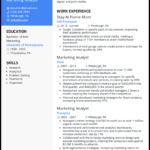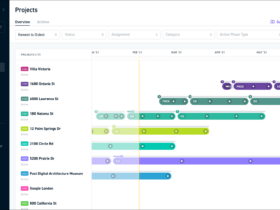Becoming a software engineer can be somewhat hard initially, but there are various courses, tools, and resources that can help people learn the skills required to become one. The field is a highly demanding one, requiring a solid understanding of mathematical principles, programming languages, software testing, design patterns, algorithms, data structures, and project management.
While a degree is not always necessary, most software engineering jobs require a bachelor’s or a master’s degree, which can take four to six years of full-time study. Companies are looking for specialized workers with specific skill sets, and technical interviews can be challenging.
However, as you progress as a software engineer, things get more complex, and one can become an expert with time, dedication, and persistence. Does pay equal skill level? Let’s find out.
Skills And Experience Required For Software Engineering
Becoming a software engineer requires specific skills and experience. As an engineer progresses in their career, they face more complex challenges that demand continuous learning. Companies look for specialized workers with unique skill sets who are able to pass technical interviews, making it challenging for newcomers to secure their first job.
Greenfield Project: Building From Scratch
One of the challenges that software engineers face is dealing with greenfield projects. These are projects that require building something from scratch, without any prior existing infrastructure or codebase. It can be a daunting task, as you need to start with a blank slate and build the software from the ground up. This requires a deep understanding of software design patterns, algorithms, data structures, and programming languages. You need to be able to create efficient code that is easy to maintain and scalable. Greenfield projects involve a high level of risk, and the success or failure of the project is generally dependent on the vision and execution of the software engineer.Progression In Software Engineering
As you progress as a software engineer, the complexity of your work increases. You’ll be tasked with more challenging projects that require more advanced skills and expertise. You’ll also have more responsibility and autonomy, which can be both rewarding and stressful. In addition to technical skills, you’ll also need to develop soft skills such as communication, teamwork, and leadership. Progression in software engineering is not always linear or straightforward, and there may be times when you feel you’ve hit a career plateau. However, with persistence and dedication, you can continue to grow and advance your career.Becoming An Expert
Becoming an expert software engineer requires a combination of technical skills and experience. In general, it takes years of practice to become an expert in any field, and software engineering is no exception. You need to stay up to date with the latest technologies, programming languages, and software engineering practices. This requires continuous learning and experimentation. You also need to be able to troubleshoot problems, write clean and efficient code, and work well with others. Being an expert means having a deep understanding of the field and being able to solve complex problems with ease. In conclusion, software engineering requires a combination of technical skills, experience, and soft skills such as communication and teamwork. Greenfield projects can be challenging but also offer great rewards. Progression in software engineering is not always linear, and becoming an expert takes years of practice. However, if you’re passionate about software engineering and are willing to put in the effort, the rewards can be great, both in terms of job satisfaction and financial compensation.Credit: www.quora.com
Challenges Faced In The Field
Being a software engineer brings its own set of challenges. As you progress in the field, the complexity of the work also increases, and keeping up with the constantly evolving technology can be demanding. Technical interviews and competition in the job market can make it difficult for beginners to land their first job.
Despite this, software engineering can be a rewarding career for those who are willing to put in the effort to continually learn and improve.
neers would agree that the field comes with its own unique set of challenges. From staying up-to-date with the latest technologies to dealing with intense competition in the job market, software engineering is not for the faint of heart. In this blog post, we will focus on the challenges faced in the field, specifically looking at technical interviews, company hiring processes, and difficulty in getting a job.Technical Interviews
Technical interviews are notorious for being particularly challenging, even for experienced software engineers. These interviews typically involve solving complex coding problems on a whiteboard or a computer while being closely observed by the interviewer. The pressure to perform well can be especially daunting, leading to a high-stress situation for many candidates.Company Hiring Processes
Software engineering jobs also often come with a lengthy and arduous hiring process. Candidates are likely to face multiple rounds of interviews, code challenges, and technical assessments. The process can take several weeks or even months, which can be frustrating for those who are eager to start a new job.Difficulty In Getting A Job
In addition to the challenging hiring process, software engineering can be a highly competitive field with limited job opportunities depending on the location. Due to the relatively high demand for technical skills, many employers have strict criteria for selecting candidates, making it difficult for those without experience or connections to break into the industry. As a result, landing a software engineering job can be a long and difficult process for many aspiring developers. Overall, while software engineering can be an incredibly rewarding and lucrative career, the challenges of the field should not be underestimated. From technical interviews to lengthy hiring processes, aspiring engineers must be willing to put in the work and overcome obstacles to succeed in this competitive field.Truths About Being A Software Engineer
Software engineering can be challenging as you progress in your career. As you become an expert, things get more complex, and you need to continuously update your skills and knowledge. Companies are looking for specific skill sets, and technical interviews can be tough, making it hard to get your first job as a software engineer.
Despite its challenges, it can be a rewarding and worthwhile career choice for those with the intellect and drive to succeed.
Misconceptions Of The Field
Software engineering is a highly touted career in the tech industry, but it is often misrepresented in mainstream media. Contrary to popular belief, it is not just about coding. There are various aspects involved in software engineering, such as problem-solving, debugging, project management, testing, and more. It requires a lot of hard work, dedication, and a willingness to learn about new technologies.
To become a successful software engineer, one needs to have a logical and analytical mindset, attention to detail, and a passion for solving complex problems. You do not necessarily have to be a math genius or computer geek to excel in this field, but you do need to enjoy taking on challenges and learning about new concepts.
Project Management
In software engineering, project management is an essential skill that ensures timely delivery of a project. It involves planning, organizing, executing, and controlling software development tasks. Good project management helps to ensure that software engineers stay on track and deliver high-quality products.
As a software engineer, you need to be able to manage your time effectively and communicate efficiently with team members, including project managers, fellow engineers, and other stakeholders. You must be able to adapt to changing project requirements and be willing to work under tight schedules to meet project deadlines.
Necessary Skills To Learn
To succeed as a software engineer, you need to learn essential skills such as programming languages, software testing, software design patterns, algorithms, and data structures. You also need to develop your problem-solving skills and be able to apply them to real-world scenarios.
- Programming language
- Software testing
- Software design pattern
- Algorithm
- Data structure and algorithm
- Project management
It is important to remember that learning these skills is an ongoing process. Technology is constantly evolving, and software engineers need to keep up with the latest developments to remain relevant in the industry.

Credit: www.amazon.com
Importance Of Mathematics In Software Engineering
Mathematics plays a crucial role in software engineering as it helps developers to solve complex problems and create efficient and scalable code. In order to excel in software engineering, it is important to have a solid understanding of mathematical principles such as algorithms, data structures, and software design patterns.
become a software engineer? The answer varies depending on the individual’s dedication, aptitude, and learning speed. However, most entry-level software engineering jobs require a bachelor’s degree in computer science or related fields, which typically takes four years to complete. To become an expert in the field, it may take several years of experience working on different projects with unique challenges. Besides technical skills, what sets experienced software engineers apart is their ability to work collaboratively in a team, problem-solving skills, and attention to detail.Mathematics Requirement
Mathematics is a crucial element in software engineering. At the heart of software engineering is the ability to solve problems, and math provides the tools for doing so. There are several mathematical concepts software engineers must have an understanding of, including calculus, linear algebra, and discrete mathematics. Calculus helps software engineers understand algorithms and optimization techniques. Linear algebra is essential for working with graphics, multimedia, and machine learning. Discrete mathematics is useful for studying algorithms and data structures.Optimizing Code Efficiency
Software engineers aim to design software that performs well and scales efficiently. Mathematics plays a significant role in this regard, as engineers must analyze algorithms and data structures to optimize their efficiency. By considering mathematical concepts such as Big O notation, software engineers can evaluate the performance of algorithms and make informed decisions about which algorithms to choose for specific scenarios. Engineers can also use mathematical tools to optimize code for the specific hardware it runs on, whether it’s a server or a mobile device.Data Structure And Algorithm
Data structures and algorithms are the backbone of software engineering. They form the foundation of nearly every computer program we interact with, from mobile applications to operating systems. Software engineers must have a deep understanding of data structures and algorithms to design efficient and scalable software. Mathematics provides the fundamental principles for analyzing and designing data structures and algorithms. By leveraging mathematical concepts such as graph theory, probability, and set theory, software engineers can develop optimal data structures and algorithms for various applications. In conclusion, mathematics is essential for software engineers. It provides the tools and concepts necessary to solve complex problems, optimize efficiency, and develop efficient algorithms and data structures. Whether it’s analyzing algorithms, optimizing code efficiency, or designing data structures, software engineers rely on mathematics throughout the development process.Is Software Engineering Worth Pursuing?
Becoming a software engineer can be a challenging venture, especially as one progresses and tasks become more complex. However, with dedicated learning and focus, one can become an expert in the field, with skills that are in high demand, thereby making it a worthwhile pursuit.
Software engineering is a popular career choice for individuals interested in technology, problem-solving, and innovation. But the question arises, is software engineering worth pursuing? Here, we will break down the pros and cons of this career along with an average intelligence level required and the duration of study needed to pursue it.Pros And Cons Of The Career
The pros of pursuing software engineering are plenty. Firstly, it is a highly in-demand field with immense opportunities for growth. Secondly, it is a well-paying career, and individuals can enjoy financial stability and job security. Thirdly, it provides opportunities for innovation where software engineers can create new products and technologies that can revolutionize entire industries. However, like any other career, software engineering has its cons. It requires long hours of sitting in front of the computer, which can lead to health problems. It can also be stressful, as deadlines, and project complexities can put pressure on individuals. Furthermore, the technology space is rapidly evolving, which means software engineers need to constantly keep up with the latest trends and tools.Average Intelligence For The Field
Many people believe that software engineering is only for geniuses, but that’s not entirely true. While it may be challenging, it is not impossible for an average person to become a software engineer. However, the field does require individuals to have a certain level of cognitive ability to handle complex problem-solving tasks.Duration Of Study
The duration of study required to pursue software engineering varies depending on one’s career goals. Individuals can pursue a Bachelor’s or Master’s degree in computer science, software engineering, or a related field, which usually takes around four to five years. However, individuals can also acquire the necessary skills through coding boot camps, online courses, or self-study, which can take anywhere from a few months to a year. In conclusion, software engineering is worth pursuing for individuals with a passion for technology, innovation and who are willing to put in the effort to constantly learn and grow. The field provides ample opportunities for financial stability, career growth, and creative problem-solving. However, it requires long hours of work, can be stressful, and requires a certain level of cognitive ability to tackle complex challenges.
Credit: agileblue.com
How To Become A Software Engineer?
Becoming a software engineer can be challenging since it involves learning programming languages, software design patterns, and algorithms, as well as having an understanding of math principles. However, with determination and the right set of skills, anyone can become a successful software engineer.
As technology continues to advance, the demand for software engineers is on the rise. But how does one become a software engineer? The first step is to establish a strong foundation in computer science. Then comes learning programming languages, software design patterns, algorithms, data structures, and project management. However, becoming a software engineer requires hard work and dedication, and it is not an easy feat to accomplish. This article will delve into the difficulty of learning programming and the hard work required to become a successful software engineer.Learning Resources Available
There are numerous online resources available for learning programming. Websites like Codecademy, FreeCodeCamp, and Udemy offer courses in various programming languages and technologies. Online communities like Stack Overflow and GitHub can provide support and opportunities to collaborate on projects. However, despite these resources being available, learning programming can still be a daunting task.Difficulty In Learning Programming
Learning programming can be challenging, especially for those without prior experience. It requires a lot of patience, practice, and persistence. Moreover, each programming language has its own syntax and nuances that must be learned. It can be frustrating when errors occur, and debugging code can be time-consuming. Additionally, software development is an ever-evolving field, and one must constantly keep up with new technologies and languages to remain competitive.Hard Work Required
Becoming a software engineer requires dedication and hard work. It is not just about coding, but also about problem-solving and creativity. Writing efficient and maintainable code requires critical thinking and attention to detail. One must stay focused and motivated to complete projects on time and according to requirements. Furthermore, it is common for software engineers to work long and irregular hours to meet deadlines or resolve issues. In conclusion, becoming a software engineer requires one to be aware of the hard work and dedication needed to succeed. It is important to have a strong foundation in computer science and programming languages, as well as the ability to constantly improve and adapt to new technologies. With persistence, patience, and motivation, anyone can become a successful software engineer.Frequently Asked Questions On How Hard Is It To Be A Software Engineer
Is There A Lot Of Math In Software Engineering?
Software engineers need a solid understanding of math to tackle various challenges encountered during the development process. Mathematical principles help engineers optimize code, improve performance and prevent issues like memory leaks or algorithmic inefficiencies. However, the level of math required varies depending on the job.
Is It Worth It To Be A Software Engineer?
Yes, it is worth it to be a software engineer. While it may be somewhat hard to learn initially, there are many resources available to help people learn. A solid understanding of math is necessary for software engineering to optimize code efficiency and improve performance.
It takes at least four years of full-time study to obtain a bachelor’s degree, which is often required for software engineering jobs.
Can An Average Person Be A Software Engineer?
Yes, an average person can become a software engineer. Although programming or coding skills and knowledge of tech can make it easier, there are numerous resources available to help anyone learn. While software engineering can be initially challenging, commitment and effort to learn can make it achievable.
How Long Does It Take To Become A Software Engineer?
To become a software engineer, most jobs require at least a bachelor’s degree that takes four years of full-time study. Some employers prefer candidates with a master’s degree, which requires an additional two years of study. Learning software engineering can be hard work at first, but many courses, tools, and resources are available to help.
Conclusion
Software engineering can be a challenging yet rewarding profession. It requires a solid understanding of programming languages, design patterns, algorithms, data structures, and strong mathematical skills. Moreover, it can take several years of full-time study to become an expert. However, with persistence and dedication, anyone can learn to become a software engineer.
The industry is constantly evolving, and new tools and resources are available to help individuals progress in their careers. Overall, those willing to put in the hard work can enjoy a successful and fulfilling career in software engineering.











Leave a Reply